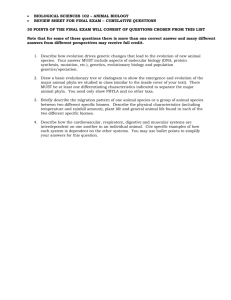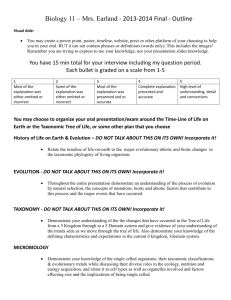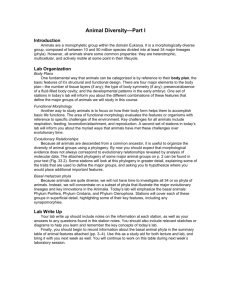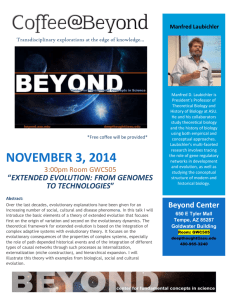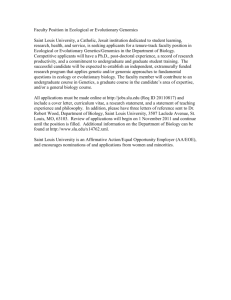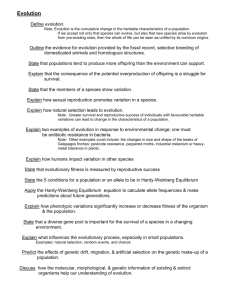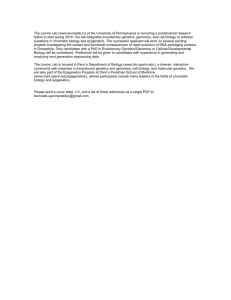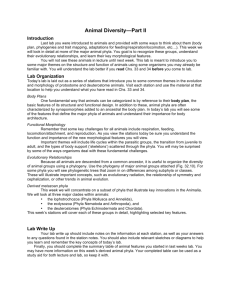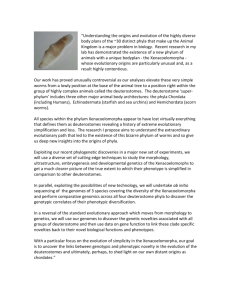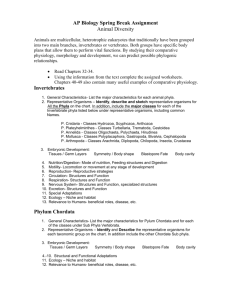· BIOMEDICAL SCIENCES 108 - HUMAN
advertisement
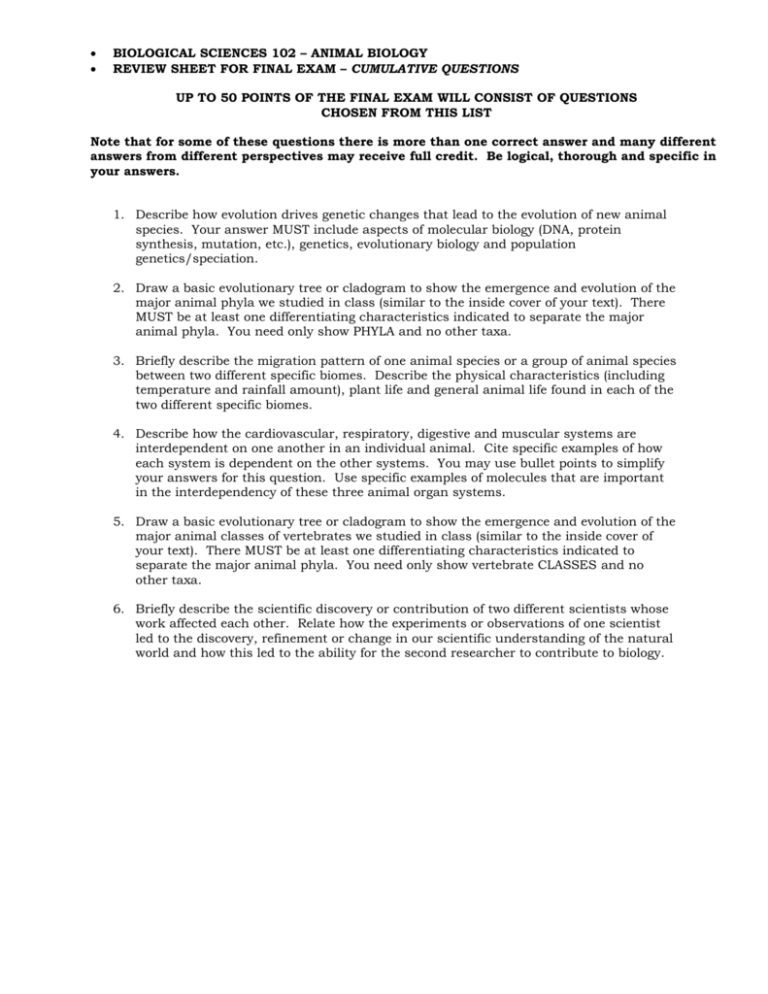
BIOLOGICAL SCIENCES 102 – ANIMAL BIOLOGY REVIEW SHEET FOR FINAL EXAM – CUMULATIVE QUESTIONS UP TO 50 POINTS OF THE FINAL EXAM WILL CONSIST OF QUESTIONS CHOSEN FROM THIS LIST Note that for some of these questions there is more than one correct answer and many different answers from different perspectives may receive full credit. Be logical, thorough and specific in your answers. 1. Describe how evolution drives genetic changes that lead to the evolution of new animal species. Your answer MUST include aspects of molecular biology (DNA, protein synthesis, mutation, etc.), genetics, evolutionary biology and population genetics/speciation. 2. Draw a basic evolutionary tree or cladogram to show the emergence and evolution of the major animal phyla we studied in class (similar to the inside cover of your text). There MUST be at least one differentiating characteristics indicated to separate the major animal phyla. You need only show PHYLA and no other taxa. 3. Briefly describe the migration pattern of one animal species or a group of animal species between two different specific biomes. Describe the physical characteristics (including temperature and rainfall amount), plant life and general animal life found in each of the two different specific biomes. 4. Describe how the cardiovascular, respiratory, digestive and muscular systems are interdependent on one another in an individual animal. Cite specific examples of how each system is dependent on the other systems. You may use bullet points to simplify your answers for this question. Use specific examples of molecules that are important in the interdependency of these three animal organ systems. 5. Draw a basic evolutionary tree or cladogram to show the emergence and evolution of the major animal classes of vertebrates we studied in class (similar to the inside cover of your text). There MUST be at least one differentiating characteristics indicated to separate the major animal phyla. You need only show vertebrate CLASSES and no other taxa. 6. Briefly describe the scientific discovery or contribution of two different scientists whose work affected each other. Relate how the experiments or observations of one scientist led to the discovery, refinement or change in our scientific understanding of the natural world and how this led to the ability for the second researcher to contribute to biology.
